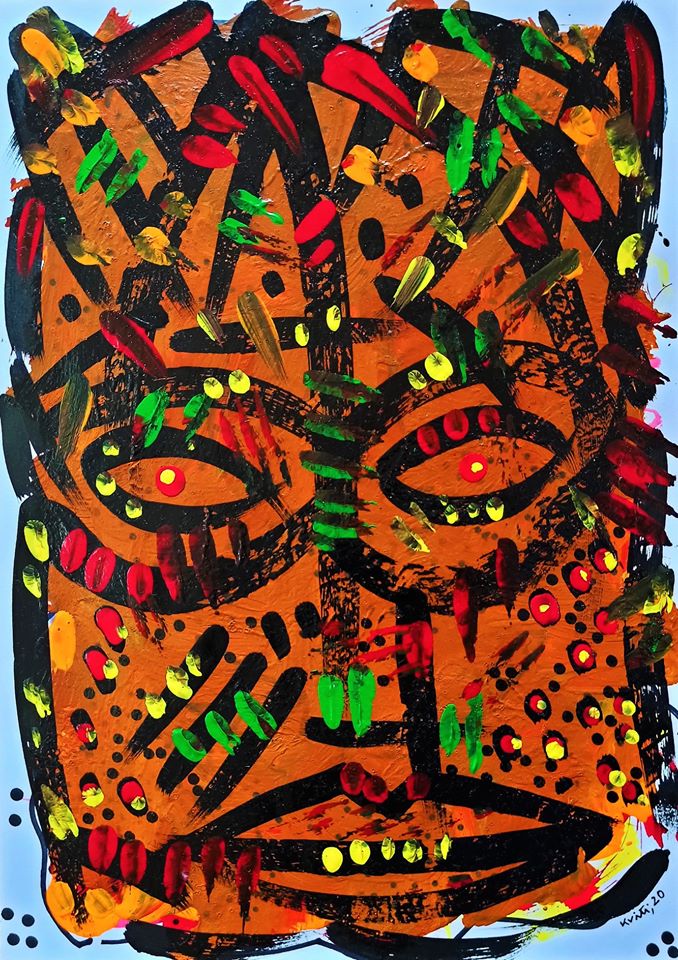Ammar Aziz
When They Spot a Muslim
In his suitcase
ittar bottles catch their eyes:
“No Alcohol.”
They sniff
the exotic fragrances
and stare
into the traveler’s eyes
like dark jewels
glittering calmly
in his aged brown skin.
His beard:
partially colored
by henna,
wavy white hair
intertwined
with the strangeness
of forgotten years
as if snow
covering the mountains
of his native land —
His wrinkled face:
snakes
dancing in the desert
while a snake charmer
plays the been —
On his forehead
the mark
which appears
on those who regularly pray
and believe it will glow
on Judgment Day —
His attire:
what magicians wear
in folklore
from the East.
Everything
about the old man
is frightening.
They ask him,
“Why are you here?”
The snakes on
his face
begin to move.
The old man responds
in a language
which could be Arabic,
Persian, or Urdu.
Languages whose
vocabularies
have words for
the unknown
and the unseen—
such as the rivers
in Paradise,
and the secret nights
of sacred months.
They have machines
to inspect his belongings
and machines
to know if he lies.
But the machines can’t inspect
the folded prayer mat
with the embroidered mosque
and an ethereal gold
crescent moon
illuminating a town
where children play
with shattered palm branches
and little stones
spread over the ground
which they sometimes throw
to survive.
War On Terror
As the wind
struggles through the grass,
Shumal Khan prays
in the sugarcane field
behind his mud hut
where he has lived
since the days
when mothers
in this valley
never remembered
dates,
but linked
their child’s birth
to something unusual
that year:
a storm, a great crop,
a plague.
He attends a funeral
in the afternoon;
has tea with his grandchildren
before climbing a hill
to collect firewood;
eats wild peaches
and as he climbs
looks above at an airplane
like a child —
the trailing smoke
reminds him
of a dirty creek.
Shumal Khan
knows nothing about the world
beyond his valley.
But he can tell
by looking at the stars
which day it will rain
this week.

AMMAR AZIZ is a poet and filmmaker from Pakistan. His poetry has appeared on Muse India, Wild Court, Dhaka Tribune, Narrow Road and Fem Asia Magazine, among other places. His multi-award winning films have been screened in over a hundred festivals all over the world. He lives in Lahore.
KRITI CHAKRABORTY, the illustrator, is a self-taught artist. He has worked as an illustrator for various little magazines and publications such as Ulto Durbin, Halum, Bagher Baccha, Kagajer Thonga, Kabikalpa, Aainanagar and others. Kriti’s paintings and illustrations can be found here.

1 thought on “Two Poems”